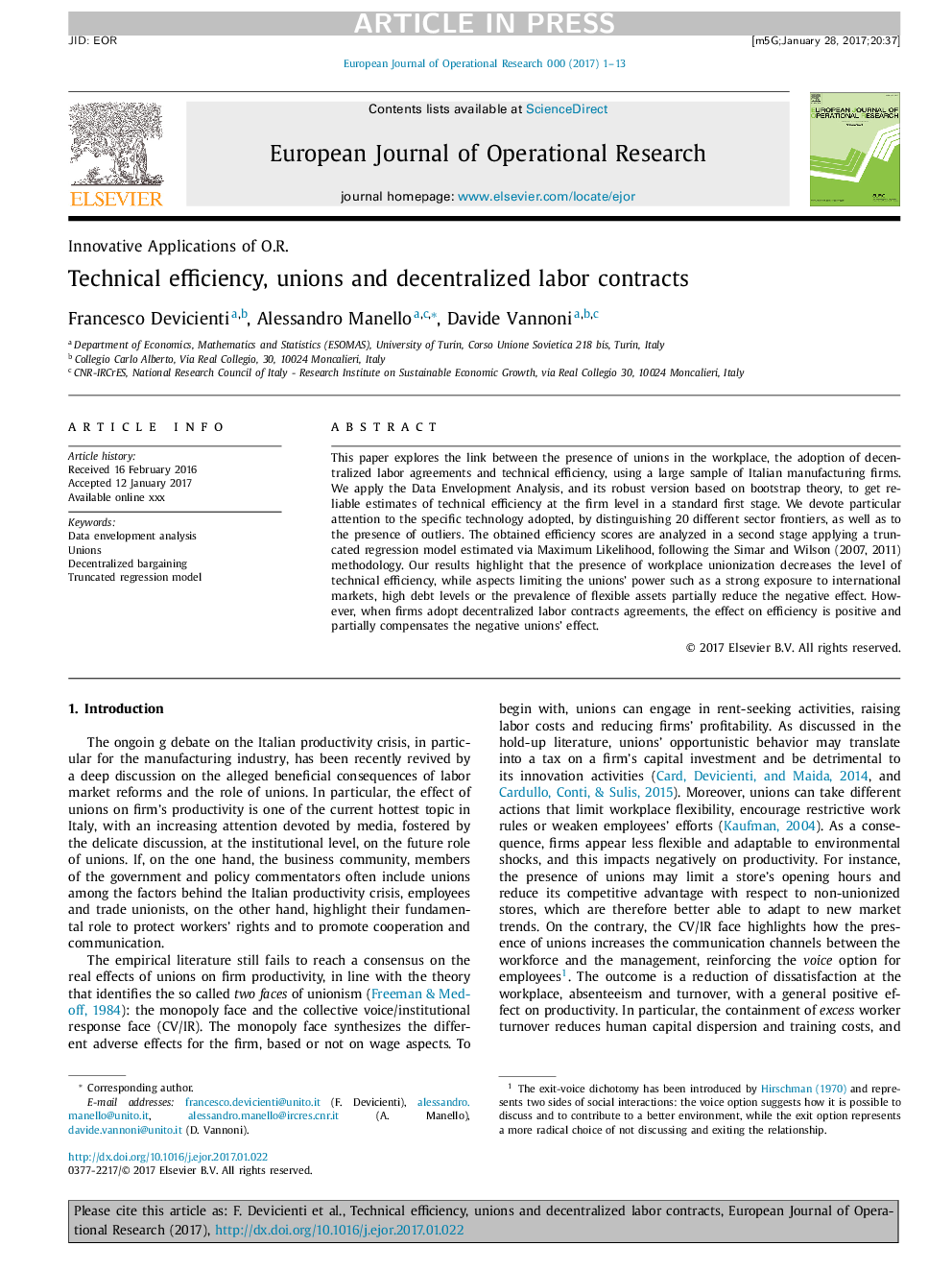| Article ID | Journal | Published Year | Pages | File Type |
|---|---|---|---|---|
| 4959688 | European Journal of Operational Research | 2017 | 13 Pages |
Abstract
This paper explores the link between the presence of unions in the workplace, the adoption of decentralized labor agreements and technical efficiency, using a large sample of Italian manufacturing firms. We apply the Data Envelopment Analysis, and its robust version based on bootstrap theory, to get reliable estimates of technical efficiency at the firm level in a standard first stage. We devote particular attention to the specific technology adopted, by distinguishing 20 different sector frontiers, as well as to the presence of outliers. The obtained efficiency scores are analyzed in a second stage applying a truncated regression model estimated via Maximum Likelihood, following the Simar and Wilson (2007, 2011) methodology. Our results highlight that the presence of workplace unionization decreases the level of technical efficiency, while aspects limiting the unions' power such as a strong exposure to international markets, high debt levels or the prevalence of flexible assets partially reduce the negative effect. However, when firms adopt decentralized labor contracts agreements, the effect on efficiency is positive and partially compensates the negative unions' effect.
Keywords
Related Topics
Physical Sciences and Engineering
Computer Science
Computer Science (General)
Authors
Francesco Devicienti, Alessandro Manello, Davide Vannoni,
